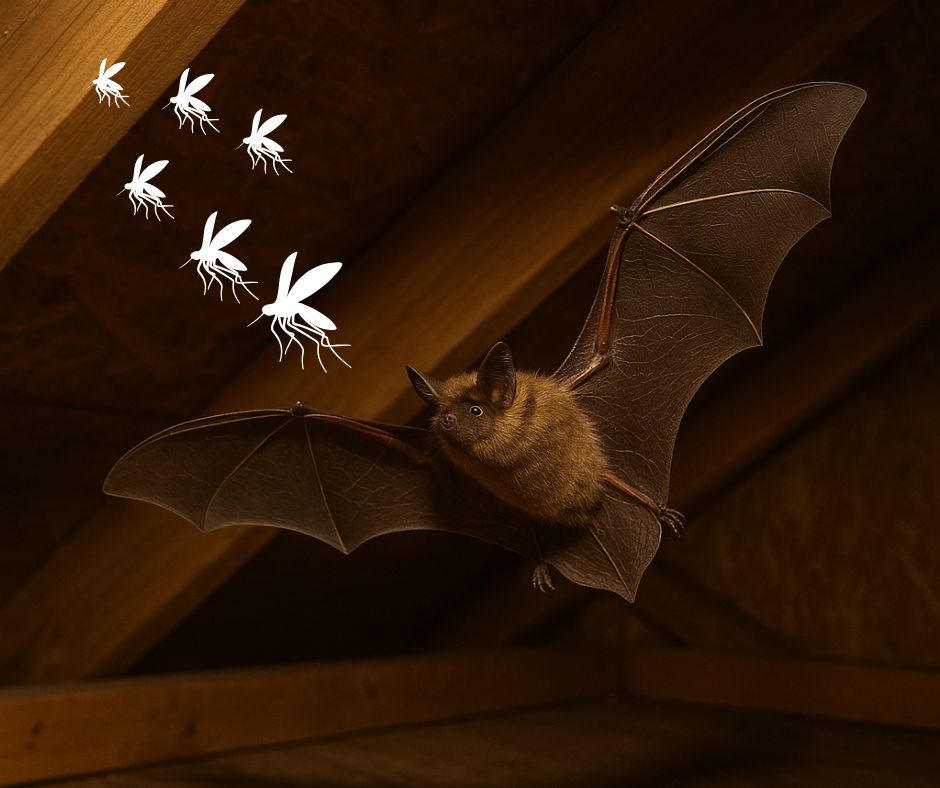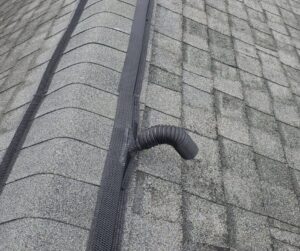WESTCHESTER COUNTY #
WESTCHESTER COUNTY #
Bats are a very misunderstood species, and due to unfair depictions in storytelling and pop culture, they have garnered a bad rap. However, bats are a very beneficial species that is crucial to the environment! While bats can be dangerous when they get inside your home, they are also federally protected, so it’s important to treat them with care. Westchester Wildlife can help, we offer safe, humane bat removal and exclusion services in the Westchester County area. We utilize the industry-tested Bat-cones and Pro-cones to safely let bats out of your home or commercial property, without allowing them to get back in. Contact our team to get started today at (800) 273-6673!
False! While vampire bats do exist, they are only a small subspecies that are found in Central and South America. In these countries, vampire bats rarely feed on humans, instead choosing to feed on livestock, birds, or wild animals. None of the bats native to the United States feed on blood. Instead, native bats like the Little Brown Bat and the Hoary Bat feed on insects, fruit, and plant nectar.
False! Bats are non-confrontational, and prefer to avoid humans whenever possible. If a bat swoops down close to you, it is most likely trying to catch a mosquito or other insect, and is not trying to hurt you. Bats may bite or scratch, but only when they are cornered/are being handled, which you should NEVER do.

Nope! Less than 1% of bats test positive for rabies. However, bats are the most commonly reported animal to have rabies, and bats are responsible for most rabies deaths in the United States, so it’s important to treat any bat exposure as a potential rabies exposure. If you see a bat active during the day, a bat found in an unusual space, or a bat that is unable to fly or easily approached, be very cautious and contact animal control immediately as these are often signs of rabid bats. Another reason why bats are able to spread rabies so easily is because they have very small teeth and claws, so their bites and scratches can often go unnoticed.
Not true! While many people think that bats are totally blind and only rely on echolocation, that could not be farther from the truth! Bats do have very small eyes and sensitive vision that is adapted to see in the dark, as bats are mostly active at nighttime. Their vision allows bats to interact with each other, avoid predators, and navigate across the sky. Echolocation, the process of emitting high-pitched sounds and interpreting echoes, is a mostly supplemental tool used to find insect prey and to navigate.
 Incorrect! Bats are EXTREMELY beneficial to humans and the environment! Bats are excellent pollinators, crucial for the production of over 500 plants, including several important crops like bananas and mangos. In addition to their excellent pollinating, bats are also excellent pest control agents, able to eat as many as 1200 mosquitoes or mosquito-sized insects in a single hour! Bats are crucial to our ecosystem, but they unfortunately are in danger. Bat populations have been dying off due to encroaching human habitats and the spread of white-nose syndrome. This is why bats are federally protected, and must be handled with care. If you have bats nesting inside your attic, contact the experts at Westchester Wildlife. Our company’s owner and founder Jim Driesacker invented the bat-cone, a humane bat exclusion device that allows bats to leave your attic, but not get back inside. Our team utilizes bat-cones to safely remove bats from your attic without any harm. Get in touch with our team today to get started at (800) 273-6673!
Incorrect! Bats are EXTREMELY beneficial to humans and the environment! Bats are excellent pollinators, crucial for the production of over 500 plants, including several important crops like bananas and mangos. In addition to their excellent pollinating, bats are also excellent pest control agents, able to eat as many as 1200 mosquitoes or mosquito-sized insects in a single hour! Bats are crucial to our ecosystem, but they unfortunately are in danger. Bat populations have been dying off due to encroaching human habitats and the spread of white-nose syndrome. This is why bats are federally protected, and must be handled with care. If you have bats nesting inside your attic, contact the experts at Westchester Wildlife. Our company’s owner and founder Jim Driesacker invented the bat-cone, a humane bat exclusion device that allows bats to leave your attic, but not get back inside. Our team utilizes bat-cones to safely remove bats from your attic without any harm. Get in touch with our team today to get started at (800) 273-6673!
Toll Free: 800.273.6673
Phone: (914) 760-5713
PO Box 579 Brewster,
NY 10509 USA
* Westchester Wildlife, LLC is not affiliated with the County. All services are fee based.
Copyright © 2025 Westchester Wildlife LLC. All Rights Reserved.